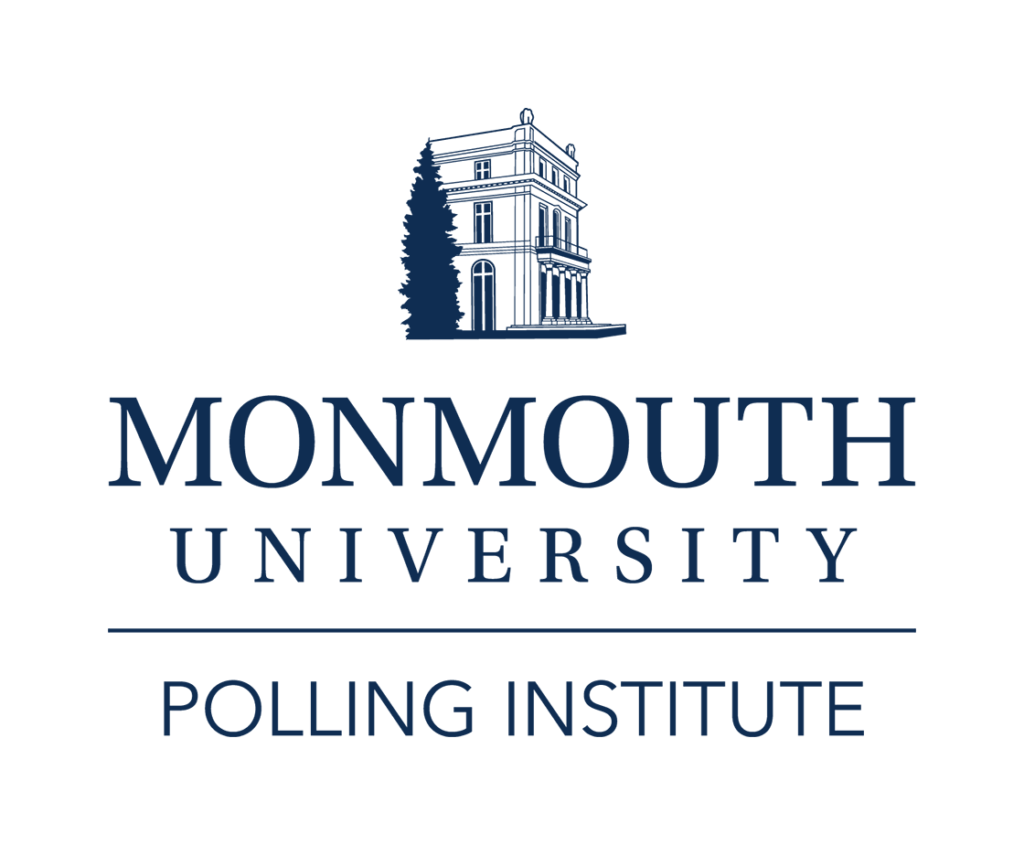West Long Branch, NJ – Donald Trump holds a double digit lead in Pennsylvania’s upcoming Republican primary, but that may not amount to much of a delegate haul because of the state party’s allocation process. The Monmouth University Poll also finds that John Kasich’s Pennsylvania roots give him absolutely no advantage with GOP voters there.
Currently, 44% of likely Republican primary voters in Pennsylvania support Trump compared to 28% who back Ted Cruz and 23% who intend to vote for Kasich. Trump performs strongest in the more rural areas of the state running from the northeast corner into central Pennsylvania, where he gets 48% of the vote compared with 24% for Cruz and 20% for Kasich. The race is slightly closer in the western end of the state running from Erie to Pittsburgh, with Trump at 43%, Cruz at 29%, and Kasich at 25%. The contest tightens further in the southwest corner around Philadelphia, with Trump at 40%, Cruz at 31%, and Kasich at 23%. Regional variations in support will have little impact on the outcome, though, since only the 17 statewide delegates are awarded to the top vote getter. Pennsylvania’s 54 district level delegates are elected directly without being officially bound to any candidate.
“It looks like Trump should be able to bank the 17 statewide delegates in Pennsylvania. The real question is how the directly elected district delegates will vote at the convention in July,” said Patrick Murray, director of the independent Monmouth University Polling Institute.
Trump (42%) is virtually tied with Cruz (43%) among very conservative primary voters, with Kasich at 11% among this group. However, Trump holds a significant lead among somewhat conservative voters – 50%, compared with 23% for Cruz and 22% for Kasich – and a smaller lead among moderate voters – 43%, compared with 33% for Kasich and 19% for Cruz.
The race is a virtual three-way tie among college graduates – 33% for Trump, 31% for Kasich, and 30% for Cruz. Trump holds a large advantage, though, among primary voters without a college degree – 53%, compared with 26% for Cruz and 16% for Kasich. Trump also leads among both men (46% to 32% for Cruz and 17% for Kasich) and women (41% to 29% for Kasich and 23% for Cruz).
The Monmouth University Poll also found that Kasich earns no primary voter love for his Pennsylvania roots. Just over half (56%) of likely voters have heard that the Ohio governor was born in the commonwealth. Regardless, fully 95% of the GOP electorate say this fact has no impact on their likelihood to vote for Kasich. Just 3% say it makes them more likely to support him.
Looking ahead to November, 72% of Republican primary voters in Pennsylvania say they would support Trump in a general election against Hillary Clinton, while 9% say they would vote for Clinton and 7% would vote for an independent candidate. If Kasich is the nominee, 75% would support him against Clinton (4%). If Cruz is the nominee, 70% of GOP primary voters say they would commit to backing him over Clinton (8%) in November.
Just over 4-in-10 Republican voters (44%) report they are completely decided on their primary choice, with supporters of Trump (51%), Cruz (45%), and Kasich (43%) showing little variation in their levels of commitment. Another 29% of Pennsylvania Republicans say they have a strong preference but are willing to consider other candidates, 9% have only a slight preference and 16% say they are really undecided even if they lean toward a candidate at this time.
The Monmouth University Poll was conducted by telephone from April 10 to 12, 2016 with 303 Pennsylvania voters likely to vote in the Republican presidential primary. This sample has a margin of error of ± 5.6 percent. The poll was conducted by the Monmouth University Polling Institute in West Long Branch, NJ.
DATA TABLES
The questions referred to in this release are as follows:
(* Some columns may not add to 100% due to rounding.)
1. If the Republican primary election for president was today, would you vote for – [NAMES WERE ROTATED]
| April 2016 | |
| Donald Trump | 44% |
| Ted Cruz | 28% |
| John Kasich | 23% |
| (VOL) Other | 0% |
| (VOL) Undecided | 6% |
| (n) | (303) |
2. Which of the following best describes where your decision stands at this moment: I am completely decided on which candidate I will support, I have a strong preference right now but I am willing to consider other candidates, I have a slight preference among a group of candidates I like, or I am really undecided among a number of candidates?
| April 2016 | |
| Already voted | 1% |
| Completely decided | 43% |
| Strong preference | 29% |
| Slight preference | 9% |
| Undecided | 16% |
[QUESTIONS 3 THROUGH 5 WERE ROTATED]
3. If Donald Trump became the Republican nominee and Hillary Clinton became the Democratic nominee, who would you vote for in the general election in November – Trump or Clinton or an independent candidate, or would you not vote for president?
| April 2016 | |
| Donald Trump | 72% |
| Hillary Clinton | 9% |
| Independent candidate | 7% |
| Would not vote | 6% |
| (VOL) Undecided | 5% |
4. If Ted Cruz became the Republican nominee and Hillary Clinton became the Democratic nominee, who would you vote for in the general election in November – Cruz or Clinton or an independent candidate, or would you not vote for president?
| April 2016 | |
| Ted Cruz | 70% |
| Hillary Clinton | 8% |
| Independent candidate | 11% |
| Would not vote | 6% |
| (VOL) Undecided | 5% |
5. If John Kasich became the Republican nominee and Hillary Clinton became the Democratic nominee, who would you vote for in the general election in November – Kasich or Clinton or an independent candidate, or would you not vote for president?
| April 2016 | |
| John Kasich | 75% |
| Hillary Clinton | 4% |
| Independent candidate | 11% |
| Would not vote | 4% |
| (VOL) Undecided | 6% |
6. Were you aware that John Kasich was born in Pennsylvania, or hadn’t you heard this before?
| April 2016 | |
| Aware | 56% |
| Hadn’t heard | 43% |
| (VOL) Don’t know | 1% |
7. Does the fact that John Kasich was born in Pennsylvania make you more likely or less likely to support him or does this have no impact on your vote?
| April 2016 | |
| More likely | 3% |
| Less likely | 0% |
| No impact | 95% |
| (VOL) Don’t know | 1% |
The Monmouth University Poll was sponsored and conducted by the Monmouth University Polling Institute from April 10 to 12, 2016 with a statewide random sample of Pennsylvania voters drawn from a list of registered Republican voters, who participated in a primary election in 2012 or 2014 or voted in both of the last two general elections or have registered since 2014, and indicate they will vote in the presidential primary on April 26, 2016. The total sample of 303 likely voters includes 203 contacted by a live interviewer on a landline telephone and 100 contacted by a live interviewer on a cell phone, in English. Monmouth is responsible for all aspects of the survey design, data weighting and analysis. Final sample is weighted for age and gender based on state registration list information on the pool of voters who participate in primary elections. Data collection support provided by Braun Research (field) and Aristotle (voter list). For results based on the total sample, one can say with 95% confidence that the error attributable to sampling has a maximum margin of plus or minus 5.6 percentage points (unadjusted for sample design). Sampling error can be larger for sub-groups (see table below). In addition to sampling error, one should bear in mind that question wording and practical difficulties in conducting surveys can introduce error or bias into the findings of opinion polls.
|
POLL DEMOGRAPHICS (weighted) | ||
|
LIKELY REPUBLICAN PRIMARY VOTERS | ||
|
53% Male |
7% 18-34 |
98% White |
|
47% Female |
27% 35-49 |
0% Black |
|
35% 50-64 |
1% Hispanic | |
|
31% 65+ |
1% Other | |
Click on pdf file link below for full methodology and results by key demographic groups.




